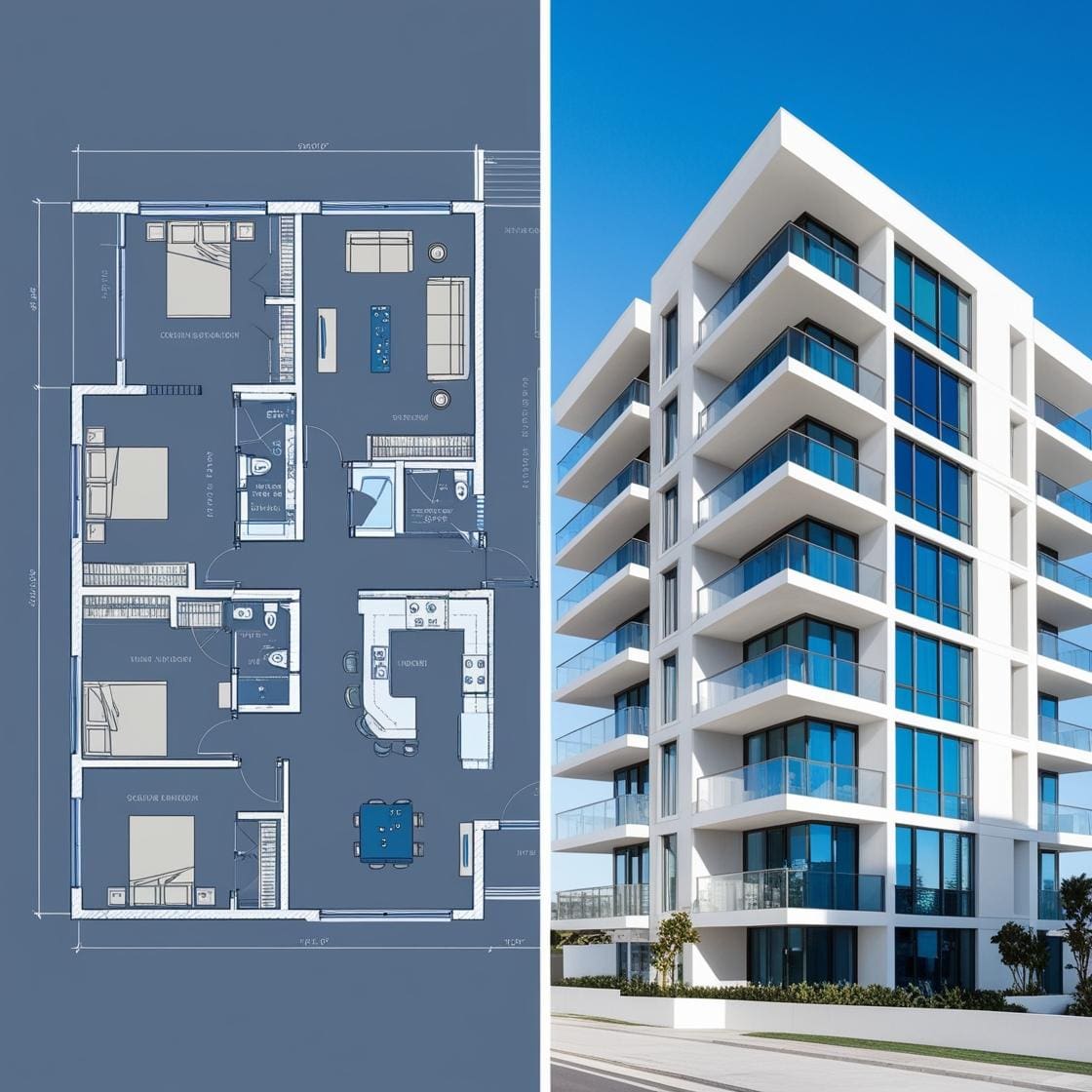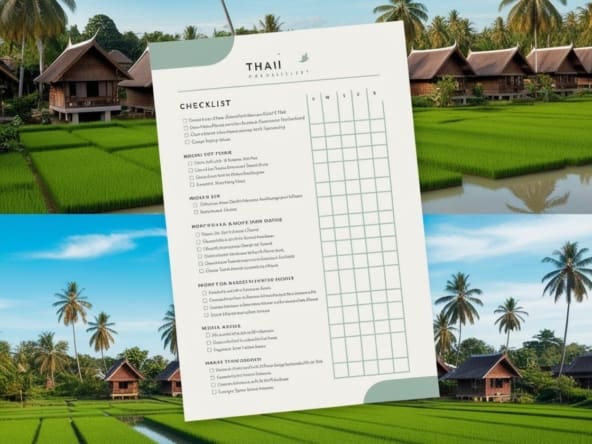Investing in real estate can be a lucrative opportunity, particularly in vibrant markets like Thailand. One increasingly popular option is buying off-plan property in Thailand—purchasing units before they are constructed. While this strategy can offer several benefits, it also comes with its own set of risks. This article explores the pros and cons of buying off-plan properties in Thailand, helping you make an informed decision.
Understanding Off-Plan Property
An off-plan property refers to a real estate development that is sold before it is completed. Buyers typically sign a contract and pay a deposit, with the expectation that the property will be finished at a later date. This method is common in Thailand, especially for condominiums and residential developments in key areas such as Bangkok, Phuket, and Pattaya.
The Thai Real Estate Market: A Brief Overview
Thailand’s real estate market has shown resilience and growth over the years, driven by tourism, expatriate demand, and a growing middle class. As of 2023, the property market in Thailand has seen a steady increase in foreign investment, with off-plan purchases making up a significant portion of the market. In Bangkok alone, off-plan sales accounted for approximately 60% of total condominium sales in recent years.
The average price of new condominiums in Bangkok can range from THB 70,000 to THB 150,000 per square meter (approximately USD 2,100 to USD 4,500), depending on the location and amenities. In prime tourist areas like Phuket, new developments can start at around THB 120,000 per square meter (USD 3,600) and can rise significantly for luxury properties.
Pros of Buying Off-Plan Property in Thailand
1. Lower Purchase Prices
One of the most significant advantages of buying off-plan property in Thailand is the potential for lower purchase prices compared to completed properties. Developers often offer attractive pricing to encourage early buyers. According to industry reports, buyers can save anywhere from 10% to 20% on the purchase price compared to similar completed units in the same area.
2. Flexible Payment Plans
Developers typically offer flexible payment plans for off-plan properties. Buyers may only need to pay a small deposit upfront, usually around 5% to 10%, with the remainder of the payment due at various stages of construction. This staggered payment structure can make it easier for investors to manage cash flow and budget for their investments.
For example, a developer might require payments at key milestones, such as:
- 10% upon signing the purchase agreement
- 30% upon completion of the foundation
- 30% upon completion of the structure
- 30% upon final handover
3. Customization Options
When buying off-plan property in Thailand, investors often have the opportunity to customize their units to some extent, such as choosing finishes or layouts. This personalization can enhance the property’s appeal and potentially increase its rental value or resale potential. Reports indicate that properties that allow for buyer customization can see increased demand and rental prices by as much as 15%.
4. Potential for High Returns
Investing in off-plan properties can yield high returns, especially in desirable locations. As the property market continues to grow in Thailand, buyers may find that their investments appreciate significantly by the time the property is completed. For instance, properties in prime locations can appreciate in value by 10% to 30% or more during the construction period.
In a recent analysis, it was reported that properties in emerging areas such as Bangkok’s Thonglor and Ekkamai neighborhoods experienced appreciation rates of 25% from off-plan purchase to completion.
5. Strong Demand in Tourist Areas
Many off-plan developments are located in popular tourist destinations, which can result in strong rental demand once the properties are completed. Locations like Phuket and Pattaya have a steady influx of tourists, making them ideal for short-term rental investments. In fact, statistics show that vacation rental occupancy rates in these areas often exceed 75%, translating into attractive rental yields for investors.
Cons of Buying Off-Plan Property in Thailand
1. Development Risks
One of the most significant risks associated with buying off-plan property in Thailand is the potential for development delays or issues. Construction can be affected by various factors, including financing problems, legal disputes, or unforeseen circumstances such as natural disasters. These delays can lead to frustration for buyers, especially if they have made financial commitments based on anticipated completion dates. Recent reports have highlighted that about 20% of off-plan projects in Thailand face delays of six months or more.
2. Market Fluctuations
The real estate market can be unpredictable, and market conditions may change between the time of purchase and completion. If the market experiences a downturn, the property may not appreciate as expected or could even decrease in value. Buyers should conduct thorough market research and consider the economic factors influencing property values in their chosen area. For instance, economic slowdowns, political instability, or changes in tourism trends can all impact property values.
3. Developer Credibility
Not all developers are created equal. While many reputable developers operate in Thailand, there are also those with a history of poor performance or unfulfilled projects. Buyers should research developers thoroughly, checking their track records, financial stability, and previous projects to minimize risk. In fact, 30% of foreign buyers reported concerns about the credibility of developers, underscoring the importance of due diligence.
4. Limited Physical Inspection
Purchasing an off-plan property means that buyers are investing in something they cannot physically inspect. This lack of a tangible product can lead to uncertainty about the quality of construction, design, and finishing. It’s essential to review architectural plans and specifications and consider visiting similar completed projects by the same developer. Buyer reviews and testimonials can provide valuable insights into the developer’s reputation and the quality of their work.
5. Possible Additional Costs
Buyers may encounter additional costs that were not initially factored into the purchase price. These can include maintenance fees, property management costs, and potential costs for modifications or repairs. Understanding the full financial implications before committing is vital. It’s also advisable to include a contingency budget of around 10% of the total investment to cover unexpected expenses during the process.
Conclusion
Buying off-plan property in Thailand can be a savvy investment strategy for those willing to navigate the associated risks and rewards. With the potential for lower prices, flexible payment plans, and strong rental demand in popular areas, off-plan purchases can lead to significant returns. However, it’s crucial to conduct thorough due diligence, research developers, and understand market dynamics.
Ultimately, whether buying off-plan is the right choice for you will depend on your financial goals, risk tolerance, and investment strategy. By weighing the pros and cons, you can make an informed decision that aligns with your objectives in the Thai real estate market.



